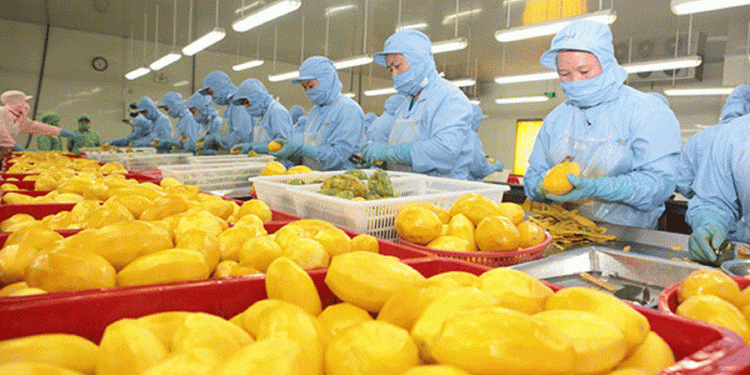#Vietnameseagriculture #agriculturalexports #economicresilience #sustainablefarming #marketdynamics #China-Vietnamtrade #exportagreements #markettrends #DeputyMinister #PhungDucTien #agriculturalchallenges
Vietnamese Agricultural Sector’s Resilience: Navigating Challenges and Pursuing $54 Billion Export Target
The Vietnamese agricultural sector faces a pivotal moment in 2023, grappling with economic adversities while steadfastly pursuing the ambitious goal of achieving a $54 billion export target. Despite a 2.7% dip in the total export revenue for agriculture, forestry, and fisheries in the first 11 months of the year, the Deputy Minister of Agriculture and Rural Development, Phung Duc Tien, remains optimistic about meeting the set target.
According to the Ministry’s report, the overall export revenue for agriculture, forestry, and fisheries reached $47.84 billion from January to November 2023, with a significant decline in the seafood sector by 18.9%, forestry by 17%, and input materials by 17.8%. However, the agricultural and livestock group saw a notable increase, with agricultural products contributing significantly to the positive trend.
Specifically, the export revenue for agricultural products is estimated to reach $24.3 billion, a notable increase of 17.1%. This surge is attributed to the increased value of exports in vegetable products, rice, cashews, and cereal products. Deputy Minister Phung Duc Tien emphasizes the importance of leveraging strengths in exports such as vegetables, cashews, rice, coffee, shrimp, and catfish to achieve the $54 billion target by the end of 2023.
As one of Vietnam’s major export markets, China, comprising 23.2% of the market share, has shown a remarkable 18% increase in the first 11 months of 2023, while the U.S. market experienced a 17.9% decline, and Japan decreased by 9.1%. Deputy Minister Phung Duc Tien anticipates a 15-20% increase in consumer demand in the Chinese market, especially before and after the Lunar New Year.
The Vietnamese government has made significant strides in formalizing key exports to China through official agreements. Deputy Minister Phung Duc Tien indicates that additional sectors, including medicinal herbs, coconuts, frozen fruits, and watermelons, are poised to transition from traditional to official exports. The potential signing of four additional agreements by the end of the year opens up new opportunities for Vietnam in the global agricultural landscape.
However, challenges persist, and Deputy Minister Tien urges businesses and associations to focus on the quality of raw materials, source traceability, and packaging facilities. He emphasizes that while favorable market conditions exist, Vietnam must seize the opportunity to process, promote, and implement the agreements with China effectively.
In the face of economic difficulties, Vietnam’s agricultural sector remains resilient and determined to achieve its $54 billion export target. Leveraging strengths in key export products and capitalizing on the positive trend in the Chinese market, the industry shows promising signs of growth. However, vigilance regarding product quality, source traceability, and efficient implementation of trade agreements is crucial for sustained success in the global agricultural arena.































